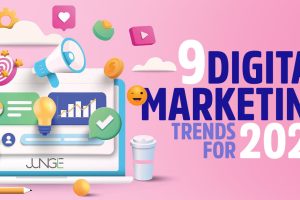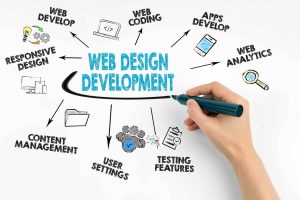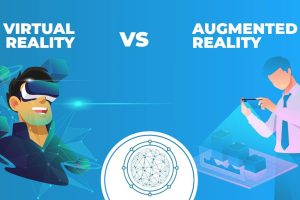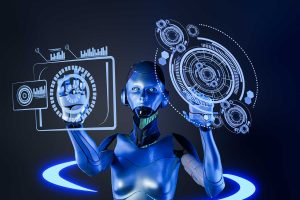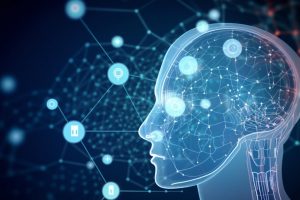The future of artificial intelligence looks vivid. It is constantly changing our landscape with many new innovations and emerging technologies. AI might be a recent change for the world, but it has made enough recognition in these years.
Artificial intelligence will evolve a lot in the coming years from what it is today. AI is the main driver of modern technologies like big data, robotics, and IoT. As far as seen, the future of artificial intelligence will also continue to drive growth for the human race in the foreseeable future.
The experts suggest that artificial intelligence will impact human existence and capabilities. That’s the reason why bigger companies and every business at some level involve artificial intelligence.
The future of artificial intelligence driving innovations

After the pandemic, artificial intelligence greatly impacted the healthcare industry, becoming a transformational force. Its impact on healthcare has been groundbreaking, reshaping many important areas and becoming digitised.
This news system highlights the importance of data and information. From chronic disease to cancer detection, AI is used everywhere to deploy more efficient, accurate, and impactful interventions. This technology also drastically improves the research areas from diagnosis to treatment.
This combination of AI and human intelligence will also bring several developments in cybersecurity. AI will combat the possibilities of cyber attacks and crimes.
AI has also been offered in other sectors like transportation and manufacturing. In the coming years, we can expect a lot of progress and commercialization of vehicles. We have already seen the emergence of self-driving cars. But in a few decades, they will be more common in space. The manufacturing sector will benefit from the expansion of AI.
Other important sectors AI will place its impact on would-be finance and business, customer services, media, space exploration, smart cities, etc.
AI Evolution
Artificial intelligence’s impact on technology is due in part to its impact on computing. Thanks to artificial intelligence, computers can receive huge amounts of data and use their intelligence to make the best decisions and discoveries in a much shorter time than humans.
Artificial Intelligence has come a long way since 1951, when Christopher Strachey wrote the first artificial intelligence on a computer, with program controllers running all their activities on the Ferranti Mark I computer at the University of Manchester.
Since then, techniques based on machine learning such as artificial intelligence, models and algorithms have been increasingly used for understanding, reasoning and elaboration, such as RNA sequencing for vaccines and to help model human speech. With innovations like these, artificial intelligence is coming into the limelight like never before and it won’t be leaving the limelight anytime soon.
Impact on various industries and fields
Almost all major industries are influenced by modern intelligence (especially “low intelligence”) that uses data modelling as a goal, and many fall into the category of deep learning or machine learning. This is especially true in the last few years, where data collection and analysis has increased due to powerful IoT connections, the growth of connected devices, and faster computing.
“I think everyone would agree that at some point limiting the ability of intelligent software would be a mistake,” said David Vandegrift, founder and chief technology officer of customer relationship management company 4 Degrees.
As companies spend billions of dollars every year on artificial intelligence products and services, and technology giants such as Google, Apple, Microsoft and Amazon spend large amounts of laboratories to create them, universities are making artificial intelligence a part of their curriculum. More importantly, big things will happen as the U.S. Department of Defense improves its intelligence capabilities.
“Many businesses live in the pattern of winter, winter, and then spring forever,” Andrew Ng, former director of Google Brain and principal researcher at Baidu, told ZDNet. “We will live in the eternal spring of artificial intelligence.”
Some industries are at the beginning of artificial intelligence, some are walking humans. They both go too far. However, the impact of intelligence on our modern society cannot be ignored.
Artificial Intelligence in Transportation:
Transportation is a sector that is a candidate to be completely transformed by artificial intelligence. Driverless cars and AI travel plans are just a few of the ways AI will impact the way we get from point A to point B. Although driverless cars are far from perfect, they will one day be able to take us from place to place. place it on another.
Artificial Intelligence in Manufacturing:
Manufacturing has benefited from artificial intelligence over the years. With AI-powered robotic arms and other robots developed in the 1960s and 1970s, the business world is already shifting towards the power of AI. These industrial robots often work alongside humans, performing a variety of tasks such as assembly and installation with analytical testing to ensure equipment is working properly.
Artificial Intelligence in Healthcare:
It may seem unlikely, but AI in healthcare is already changing the way people interact with healthcare providers. With its big data analysis capabilities, artificial intelligence helps identify diseases faster and more accurately, find medicines quickly and easily, and even monitor patients virtually from nurse assistants. AI uses machine learning, facial recognition, and facial recognition to help measure student sentiment to help digitise textbooks, catch criminals, and determine who is out or bored. Artificial intelligence will adapt the learning experience to students’ individual needs now and in the future.
Artificial Intelligence in Media:
The journalism industry also uses artificial intelligence and will benefit from it as well. An example of this is the Associated Press’s use of Automated Insights, which produces thousands of earnings reports each year. But as generative AI authoring tools like ChatGPT enter the market, questions about their use in journalism are also increasing.
Artificial Intelligence in Customer Service:
Most people fear receiving robocalls, but Artificial Intelligence in Customer Service can provide insight to businesses – providing tools to support customers and suppliers. Artificial intelligence tools for the customer service industry are offered in the form of chatbots and virtual assistants.
Artificial Intelligence and People: How Are They Different?

Artificial intelligence is ultimately a product of human imagination. Thanks to human creativity, full automation of different tasks is possible today. Although the question of whether we will be replaced by artificial intelligence remains, we can be sure that artificial intelligence has not yet reached the technological level that will take over humans.
Will AI dismantle human capabilities
This fear has always been on people’s minds as Artificial intelligence progresses daily. Even big tech minds and business magnates have warned humans against the potential threats and worst outcomes of technology. One widely claimed consequence is that AI can take over human jobs, causing massive job loss and financial instability. This clAIm is highly argumentative, and research believes that AI will not entirely take over human jobs, but it can create a scarcity of jobs. AI can replace some routine jobs and repetitive tasks like picking and packaging, responding to customer queries, and many more.
These tasks are currently done by humans, and in the future, AI can replace these jobs. This is why humans should learn high skills like coding, programming, and skills that can work in the future. The transition should be smoother to reduce the massive impact of technology.
Artificial Intelligence Automation: Differences on the Same Coin
Both have advantages and disadvantages. Artificial intelligence is not an exception. The benefits of AI automation range from very good to very bad. AI developers should carefully study and analyse these results before determining the long-term impact of AI on humans.
Advantages of the coin:
The intelligence prospect has many dimensions, from facilitating daily activities to supporting the internal functioning of the business more broadly. The computational and statistical capabilities of AI have proven to be very useful in many fields. The accuracy of AI technology’s predictive potential impacts many areas differently, whether it’s forecasting weather or stock prices. This is not only followed by data research and prediction, artificial intelligence is also used in riskier activities such as space exploration and ocean exploration.
Negative Effects of the Coin:
Since intellectual intelligence has a positive side, it will inevitably have an opposite side as well. From AI bias to social media, AI is influencing culture in previously unknown ways.
The emergence of intelligent automation has brought great changes to people’s daily lives. Tasks that once required physical labour can now be done without lifting a finger. This means that people now have more free time and are looking for new experiences to fill the gap. However, this search for new knowledge works better for some than others and has some important social and psychological consequences for the culture.
Conclusion
So will AI completely change the human race? Its impact on the larger aspect is still unpredictable. We can see AI is growing as other technologies continue to evolve. AI has the potential to revolutionise the industry, but it cannot change the human race. Its impact on the human race completely depends on how the future of artificial intelligence can change the human race. Its impact on the human race depends on how we develop, deploy, and use it.





